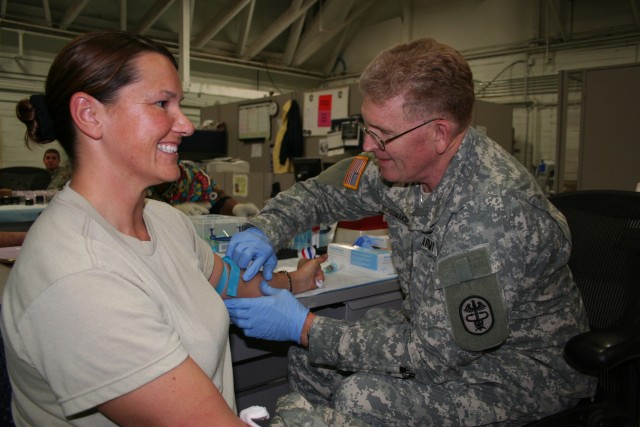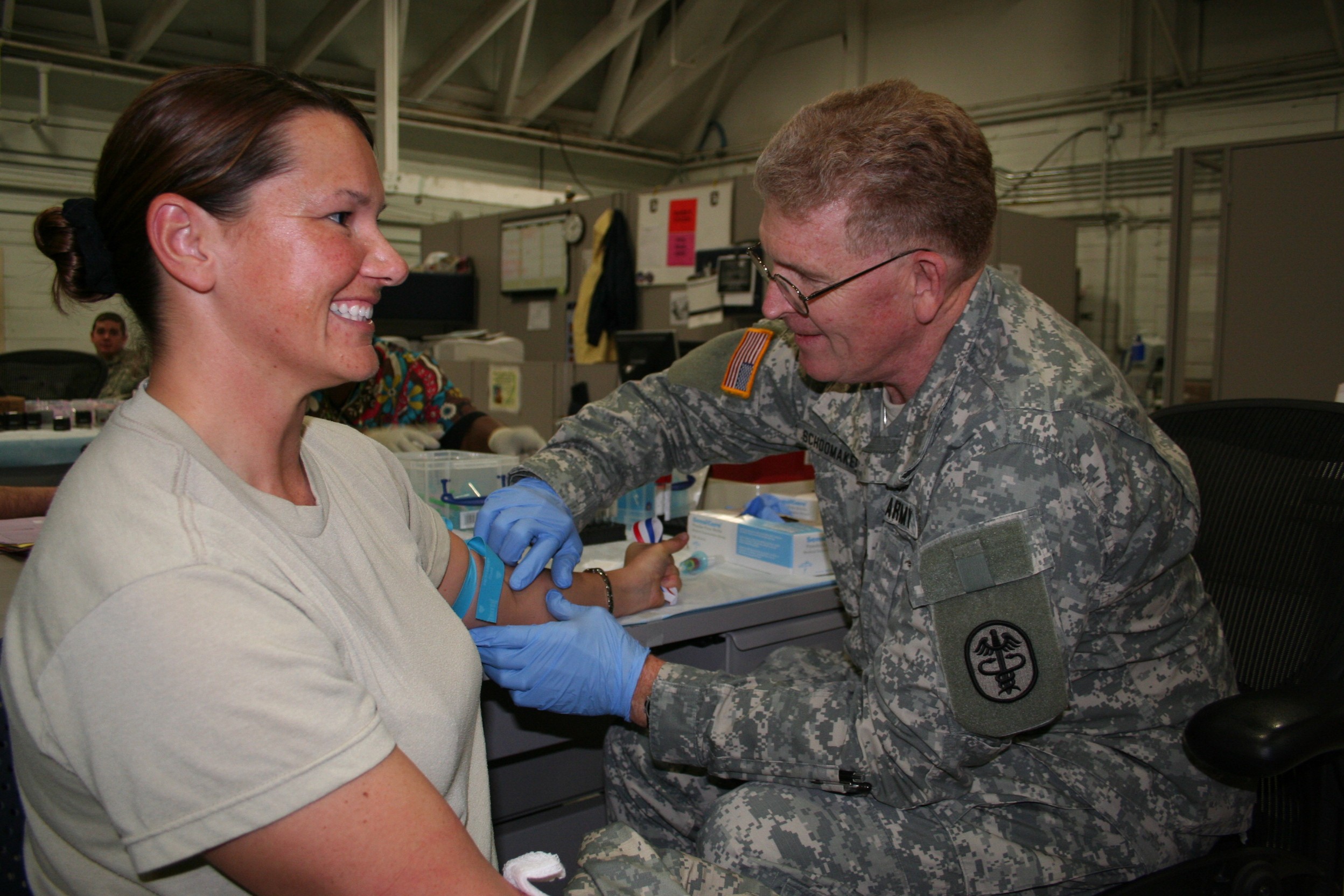
FORT CAMPBELL, KY - Nov. 24, 2008 --Reintegration and recognition were on the agenda as the Army surgeon general visited with Soldiers Nov. 24 at Fort Campbell.
Lt. Gen. Eric Schoomaker reviewed reintegration operation services being performed by Blanchfield Army Community Hospital staff and how those services impacted more than 10,000 Soldiers who returned from Iraq and Afghanistan this year. Since January, more than 48,000 medical readiness visits have occurred for Soldiers either pre-deployment or reintegration related.
Schoomaker met with recently redeployed Soldiers of the 159th Aviation Brigade. Col. Ron Lewis, 159th Brigade commander, and some of his Soldiers spoke about their experiences with the reintegration process.
Afterwards, the general received a briefing on the behavioral health assets the hospital has to offer, traumatic brain injury and post traumatic stress treatments Soldiers receive and the reintegration process.
Schoomaker got a first-hand look at the process at the Soldier Readiness Processing site. Up to 600 Soldiers a day go through the process. The surgeon general said he was most interested in identifying areas of stress and focusing on treatment for affected Soldiers and their families.
Taking care of each other and our families is one of our top priorities, said the general. This is especially true about those Soldiers that don't have any visible injuries.
Schoomaker toured the Automated Neuropsychological Assessment Metrics testing building. ANAM is a computer-based tool designed to detect speed and accuracy of attention, memory and thinking ability of patients by recording their performance through responses provided on a computer. Fort Campbell served as the first post to conduct the testing prior to deployment and again following the return from deployment. Data gathered from Screaming Eagles will help identify cognitive impairments and direct treatments for the Soldiers.
"We want to offer you counseling or anything else we can provide," he said. "Talk to us, talk to your chain-of-command [to receive the help you need]."
Schoomaker told the Soldiers it is common to experience sleep loss, unpleasant thoughts about combat experience and to feel stress after an injury.
"When you notice that your battle buddy or fellow Soldier is acting differently, help him/her find the help [they] need," he said.
Schoomaker stopped in the Post Traumatic Stress and Traumatic Brain Injury center and spoke with several WTU cadre members about the challenges they face. The comprehensive care plan is working well for Soldiers, the surgeon general said, and he encouraged cadre to continue to rely on their instincts and training as they continue to offer superb care to wounded and ill Soldiers.
"It is our duty to take care of each other," Schoomaker said. "To make us the strongest force we can be."

Social Sharing